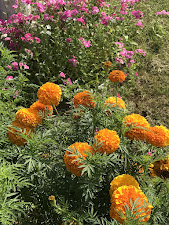Phagan di Sangrand is a Sikh festival that is celebrated on the first day of the month of Phagan in the Nanakshahi calendar which typically falls in mid February. This year it is on Febraruy 13th.
Basant is a festival which marks the arrival of spring and falls during the month of Phagan or February-March. It is considered a religious and cultural celebration, and is an occasion for Sikhs to come together to celebrate and reflect on their faith. During Basant, Sikhs usually hold special religious services and perform hymns and prayers, and also engage in cultural activities such as singing, dancing, and playing musical instruments.
Here are a few shabads that are commonly sung to commemorate Basant:
"Basant Raga" - A classical composition in raga Basant, this is performed during Basant to welcome the arrival of spring.
"Jhini Jhini Bini Chadariya" - This praises the glory of the Guru and the power of the Sikh faith.
"Hari Bhajan Bina" - This is a devotional hymn that emphasizes the importance of meditation and devotion to the Guru in Sikhism.
"Aukhi Ghari Dekhi Naal Mili" - This shabad encourages Sikhs to seek the guidance of the Guru in their daily lives.
"Jin Prem Kiyo Tin Hi Prabh Paayo" - This shabad emphasizes the importance of love and devotion in achieving a connection with the Guru.
Basant is also a time when many flowers begin to bloom after the winter season. The sight of brightly colored flowers in full bloom is considered a symbol of the arrival of spring and the renewal of life. In India, some of the most common flowers associated with the festival include marigolds, jasmine, and roses. These flowers are often used to decorate homes and public spaces, and are also used to make garlands and flower arrangements. Overall, the blooming of flowers during Basant is an important part of the festival and is a source of joy and celebration for many people. It symbolizes the arrival of spring and the renewal of life, and serves as a reminder of the beauty and wonder of nature.
A popular and cultural tradition of Basant is kite-flying. People fly colorful kites to symbolize the arrival of spring and the joy that comes with it.It is enjoyed by people of all ages and it is common to see large crowds of people gathered on rooftops and open spaces, flying kites and competing to see who can keep their kite flying the longest.

















